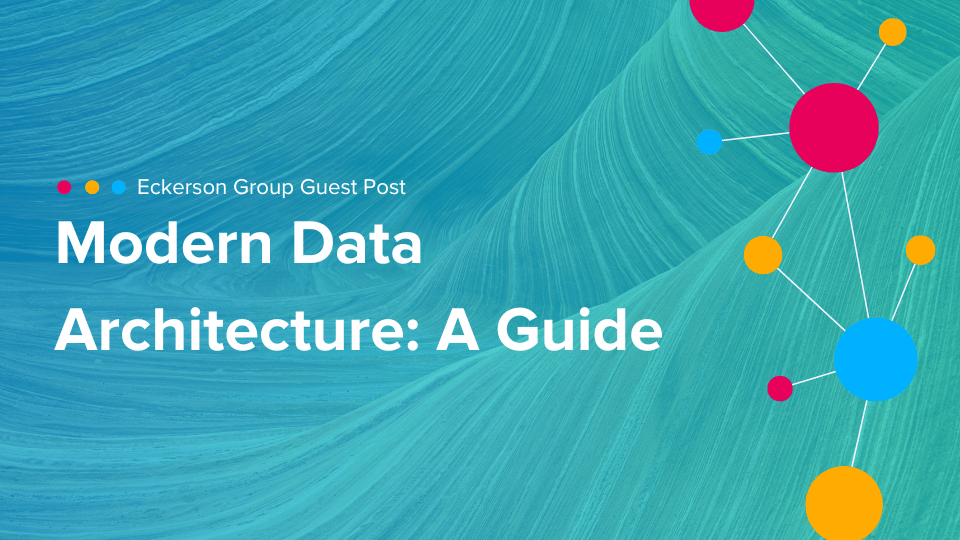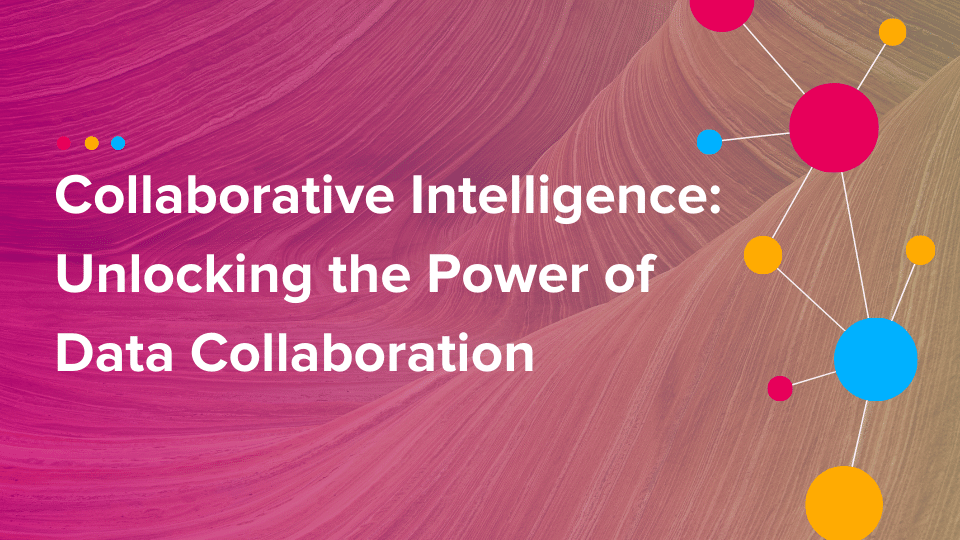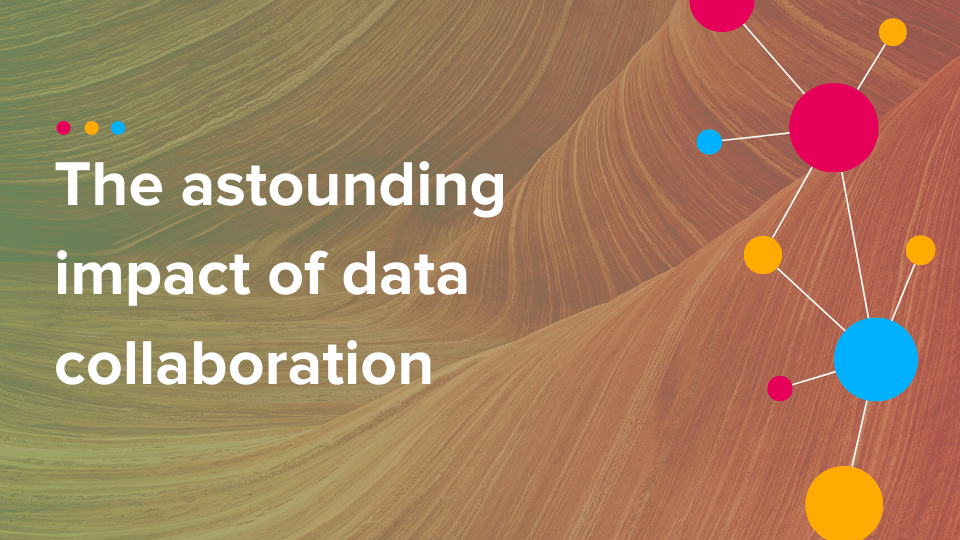Unpacking Data Collaboration and Data Co-Production
Access Over Copies in the Age of AI
In a rapidly evolving digital landscape, the management and utilization of data have never been more critical for businesses. The traditional approaches to data management, which often involve creating copies and centralizing data, are being challenged by a new paradigm known as data collaboration. But what exactly is data collaboration, and why should you care?
In a recent live broadcast, The Power of “Controlled Co-Production of Data" AKA Data Collaboration, Dan DeMers, Co-founder & CEO at Cinchy and special guest Michele Goetz, VP and Principal Analyst at Forrester, took to answering these questions and explored the implications for the world of AI. In this post, we’ll dive into some of the insights gained from that discussion.
What is Data Collaboration?
Data collaboration is a transformative approach to data management. It shifts the focus from copying data into separate silos to granting controlled access to data sources. Dan DeMers emphasized this shift by stating, "You can't copy money, you can't copy humans, you can't copy intellectual property, and it's not that you technically couldn't do that, it's that there's reasons why you are prohibited from doing that." Access-based collaboration allows data to be fluid, ensuring it's used efficiently and securely without unnecessary duplication.
Why Data Collaboration Matters
Data is at the heart of business processes, and it's the key to making informed decisions. As Michele Goetz put it, "The whole point of using data is to drive business value." Data collaboration enables organizations to harness the full potential of their data by promoting efficient access, collaboration, and, most importantly, controlled governance.
Where Data Mesh & Data Fabric Come In
Data collaboration is closely related to concepts like Data Mesh and Data Fabric. These approaches emphasize breaking down data silos and enabling data to be used as a product, but the crucial difference is that data collaboration emphasizes controlled access to data, not just its distribution.
'Access Not Copies' in Data Collaboration
The 'access not copies' approach is the fundamental pillar of data collaboration. Rather than duplicating data in various systems, individuals, or teams are granted access to the data as needed. Dan DeMers described this as, "It's the co-production that makes this magical." Data should be accessible, and its use should be collaborative, but always under control to prevent security and privacy risks.
Data Co-Production in Data Collaboration
Data co-production is a core element of data collaboration, where teams or individuals collaboratively work on data to enhance its value. It involves various parties adding their intelligence and insights to the data, making it richer and more valuable. As Michele Goetz referenced, data co-production aligns with her point about bringing different skills, competencies, and perspectives to the table for effective data collaboration.
The Connection with AI/ChatGPT
The conversation also delves into the role of AI and generative models, such as ChatGPT, in data collaboration. Michele Goetz highlighted that these models rely on a vast amount of data for training and refinement. The 'access not copies' model enables organizations to provide AI with the necessary information, allowing them to create new experiences and make data more interactive.
Dan DeMers illustrated how AI, like ChatGPT, should operate within the context of access-based collaboration. The AI should act under the identity of a user, with the same access restrictions ensuring data privacy and security.
The conversation between Dan DeMers and Michele Goetz during The Power of “Controlled Co-Production of Data" AKA Data Collaboration shed light on the significance of data collaboration and the shift from copying data to granting controlled access. In the era of AI and data-driven decision-making, data collaboration is paramount. It enables organizations to harness the power of their data, promote collaboration, and maintain data security and privacy.
To sum up the key takeaways from the discussion:
- Collaboration is essential in working with data. It involves bringing different perspectives, skills, and competencies to the table.
- Data should not be stored in data museums. Instead, it should continuously flow through the organization to drive better business outcomes.
- Data collaboration empowers users to interact with data effectively and efficiently, fostering better decision-making.
- An access-based model allows organizations to control data and collaborate securely.
- AI and generative models like ChatGPT rely on data, and data collaboration provides a framework for controlled access to that data.
By adopting data collaboration, businesses can unlock the full potential of their data assets, enhance their decision-making capabilities, and maintain the security and privacy of their data. It's a paradigm shift that's well worth embracing in the evolving data landscape.
To learn more about data collaboration, check out our report, Moving Beyond Data Integration with Data Collaboration.
More from Forrester
Enabling Data Mesh Principles and a Data Fabric Foundation
Q&A with Michele Goetz, VP and Principal Analyst, Forrester
Share this
You May Also Like
These Related Stories

Modern Data Architectures: A Guide

Collaborative Intelligence: Unlocking the Power of Data Collaboration
